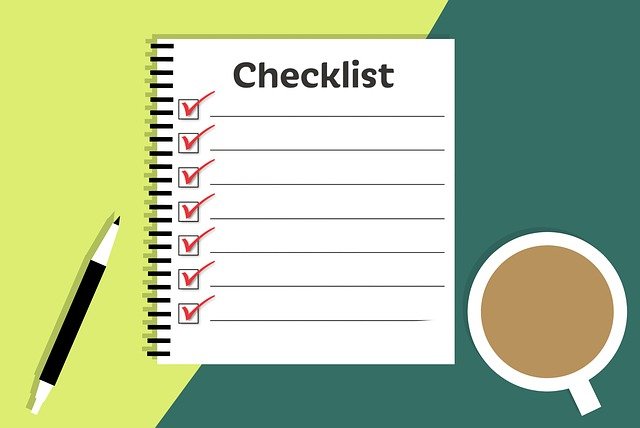
by Jay Rege | Feb 15, 2021 | Masters Abroad, MS in Canada, MS in USA, Study Abroad
When Nikhil decided to apply for his Masters, he knew his GPA was not that strong, although he had done some great projects during his bachelors. Fortunately, for him, his brother was an recent graduate at UCLA (University of California at Los Angeles), and that too from the same department Nikhil planned to apply to. His brother spoke to one of his professors at UCLA and explained Nikhil’s case. The professor agreed to speak to Nikhil over a video call, that although started off as a general conversation, ended up in an hour long interview which ended with a note from the professor saying “Nikhil, I strongly encourage you to apply to our program.” Nikhil put in his best application, and few months later was on a flight to LA.
Like Nikhil, there are several examples where informal referrals by a family member have helped students get admission. Tap into your network, be it friends or family. If you have a friend or family member who is studying or an alumni of the program you are applying to, ask them to refer you to the program.
Co-Founder of Academy One

by Jay Rege | Feb 14, 2021 | Masters Abroad, MS in Canada, MS in USA, Study Abroad
Kunal graduated from a college in Mumbai with a average GPA and had an average GRE. Here is his story of how he managed to secure admits from Georgia Tech for the MS in Electrical Engineering program.
During his undergrad, Kunal worked extensively on research on ‘Antenna Designs’ . When it came to applying this is what he did:
- Researched universities which had research groups relevant to his research interest
- Made a list of professors with info about their ongoing research projects
- Sent an email explaining his interest, background and how he could contribute to their ongoing research work. This helped him start a conversation with those professors.
- He then requested those who replied for phone/video call. Some of the professors agreed to have a discussion with him where they spoke about their research and also tried to understand his background and research.
- Mentioning all this in the SOP of the university and keeping the professors updated about his application status helped him secure some top admits.
- He eventually went to Georgia Tech where he also managed to get a Research Assistantship with the same professor who had interviewed him
Kunal is not an isolated cases. Contacting faculties at your target universities works provided you have some research experience to discuss with them.
Co-Founder of Academy One

by Jay Rege | Feb 13, 2021 | Masters Abroad, MS in USA, Study Abroad
Anil graduated with a Electronics degree from India but wanted to pursue a MS in CS from the US. When he wrote to the CS department head of NCSU about his interests, he got a reply saying that they cannot consider his application as he did not have the prerequisite courses in CS that they expect every incoming student of the department to have taken during the undergrad. The department head however offered him a solution. Anil thus applied for the MS in EE program. After joining the university he discussed his profile and interests with the Computer Science department head. The HOD asked Anil to take two courses from the computer science department in the very first semester and if he scored an A in both of those, he would let him switch his degree to the MS in CS program. Anil did, and eventually graduated with a degree in Computer Science
You could try this too. There, however, is a risk that after joining the university you may not get the transfer to the desired choice of program the following semester. But after all, it’s all about taking a calculated risk.
Co-Founder of Academy One

by Jay Rege | Feb 12, 2021 | Masters Abroad, MS in USA, Study Abroad
Raj graduated with a Masters from the University of California at Berkley and started working with Microsoft as a Applied Machine Learning Engineer from June 2020. Studying at a top notch US university was a dream that Raj nourished since the time he started his computer engineering program at a local college in Pune. Raj says “When I joined my engineering college, I was a bit disappointed that I did not have a brand-name university for my undergrad. I was, however really determined at making it to Berkeley, Stanford or a CMU kind of university for my masters. I started preparing from my second year itself. I started participating in extracurricular activities which would add to my profile. I also started learning Data Mining via online courses. In my third year, I started doing small projects with professors based on my MOOC learning. These two years added a lot to my profile, as well as built a strong relation with faculty who could then write strong”
“When it came to applying, I realized that getting into the core Computer Science Masters program at most of these top schools is very competitive. While researching about these universities, I also realized that they offer several specialized programs that covered specific aspects of computing. For instance UC Berkeley offered the Master of Information Management and Systems (MIMS) program, CMU offered programs in AI,HCI, Machine Learning, Robotics, Software Engineering and a few others. So at these top schools, I applied to such specialized program rather than the generic CS program.
Amongst the admits that I received the top two best ones were the MIMS program at UC Berkeley and MS in CS from UCLA. I chose UC Berkeley because: (i) There were professors who were working in exactly my field of interest (ML + Security), (ii) When it comes to job opportunities, the name of the degree hardly matters; the coursework does, and the University name matters and (iii) Proximity to the bay area”
Takeaway:
1: Graduating from a top school even from a non core program gives you equally good opportunities when it comes to your job search.
2: The brand of the university stays with you for life.
Co-Founder of Academy One

by Jay Rege | Feb 3, 2021 | Masters Abroad, MS in USA, Study Abroad
Part 3: DECIDING WHERE TO APPLY
Start with a larger list:
Categorize universities into
- Ambitious – where you have a low chance of getting in. These would be universities say only 20-25% students with profiles similar to yours have got in.
- Moderate – Where almost 60-70% of the students with profiles similar to yours have got admits in the past
- Safe – Where you are almost certain to get in (80-90%) chance.
While evaluating your profile at this stage, look at ONLY the key factors of your profile (GPA, GRE, TOEFL). Look at the broad indicators on GPA and GRE requirements of the universities and data of past students who got into these universities. Prepare a list of
- 10 Ambitious Universities
- 8 Moderate universities
- 5 Safe universities
Narrow it down:
Once this is done, the next step would be to narrow down the list. Applying costs you money and time, so ideally it is recommended that you apply to about 8 to 10. Here is how an ideal split should be
- Ambitious: 4 to 5 universities
- Moderate: 3 to 4 universities
- Safe: 1-2 universities
While narrowing down this list consider all other factors such as:
- Reputation & Rank of the university
- Location
- Faculty profiles, Curriculum, Research, Co-Op options offered by the program etc
- Talk to past and current students from these universities to get a better sense of the program and environment
- In case you are applying to a research program, write to faculty whose research interest matches with yours. Seek their feedback.
- Consider the tuition and living cost at the university
- Other factors that are important to you – Weather, Family/Friends already studying at the university
Note: If you decide to apply to more universities, apply to more in the ambitious category. It is always better to get an admit from 1 top university, rather than admits from many Safe universities.
Specialized programs:
Consider applying to specialized programs. Admissions to specialized programs (e.g. MS in Machine Learning) are easier than admissions to generic masters degrees (e.g. MS in Computer Science)
The X- Factor:
Personal recommendations at times do work. If you have a family member or a friend working as a faculty at the university, or your sibling graduated from that same program you are applying to, they could write a personal recommendation to the admissions committee (it could be an informal email) recommending you to the program. Even a current or past student can recommend you as a friend (a recommendation from a current or recent PhD student works better).
Campus Visits
This may seem a little farfetched, but if you are in the USA or planning to visit USA for some reason, it is definitely recommended that you visit the department of the university you intend to apply to (at least the ones on the top of the list). Do so by making a prior appointment with the department head or senior faculty at the department. During the visit, discuss you profile, your interest etc and after the visit when its time for applications, do keep them in the loop.
Resources to refer to :
US News Graduate School Rankings – gives department wise rankings and admissions stats
https://www.usnews.com/best-graduate-schools
Masters Portal – Lists general rankings
https://www.mastersportal.com/ranking-country/82/united-states.html
QS World
https://www.topuniversities.com/university-rankings-articles/world-university-rankings/top-universities-us-2020
Co-Founder of Academy One

by Jay Rege | Feb 3, 2021 | Masters Abroad, MS in USA, Study Abroad
Here are factors you should consider while deciding on universities you can apply to
- Reputation & Ranking of the university
- Admission Statistics of past students
- Location
- Alignment with your career interest
- Experience of past and current students
- Cost Factor
- Other factors
Reputation & Ranking of the university
Check the university rankings. Make sure you refer to authentic sites and preferably refer to departmental rankings rather than overall university rankings.
How to use rankings: While ranking is a good indicator of the university’s reputation, you need to understand that ranking depends on several factors and as a graduate (masters) applicant you may not be affected by all of them. So a university ranked 25 is not necessarily better than a university ranked 30. From a student’s perspective, they would be the same. But a university ranked 25 is definitely better than a university with rank 55. So use rankings as a guideline to get an idea of the reputation of the university.
Admission Statistics of past students
Statistical data is a fair indicator when it comes to predicting admission trends. So look at statistics of past students of a particular university. This will give you a good idea of what profiles of incoming students does the university prefer. Again remember that there aren’t any hard rules here. Just because somebody with a certain GRE score and GPA got it last year, doesn’t mean that you will definitely get because your profile is similar. You need to understand that admission is a subjective process and your overall profile (which includes your recommendation letters, your resume, your SOPs) counts. But if few students with profiles similar to yours have got admitted to the program, it only means that you stand a fair chance of admission.
Location of the University
Location matters.Yes there is definitely an advantage of studying in a big city, especially when it comes to jobs after graduation. A lot of small and medium companies in big cities prefer to hire locally from universities close by. So does this mean that a university ranked 100 is better than a university ranked 25, just because the 100th ranked university is located in a big city? Definitely NOT. But yes studying at big city university would bring you more career opportunities than a comparably ranked school in a smaller town.
Alignment with your career interest:
- Curriculum: Look at the curriculum offered by the program. See if the subjects offered align with your interests.
- Research: If you are interested in research, find out what research is going on in a particular university. If you find some professors research interesting, do not hesitate to email them expressing your interest in their research.
- Co-Op: If the university offers co-op options, find out what companies typically recruit students for co-ops.
- Faculty Profiles: Look at the profiles of faculty teaching the program of your interest. See how many of them are involved in active research in your areas of interest.
Experience of past and current students
Talk to current students of the university. But don’t ask vague questions, because if you ask vague questions you get vague answers. List down specific question to ask, on factors that matter to you. For instance you can ask
- How many or what percentage of students get funding or on-campus jobs?
- How many of them get those in the very first semester?
- Do MS students get to participate in research?
- Do companies come to campus for recruitment for internships and full time jobs?
- If they don’t, how do students go about their job search?
Cost factor:
Take a look at the fees the university charges. Get an estimate of the living costs around the university. If you think you cannot afford it, there is no point in applying there even if you think you might get admission there. Apply only to those universities where you can afford to go.
Other Factors
- Weather of the place where the university is located
- Family presence near the university if any
- Friends/classmates/seniors already studying at the university
- Alumni network of the university
- Student faculty ratio
- Career services and job fairs happening on campus
- Class size*
- Diversity*
- Extracurricular activities, sports facilities etc provided on campus.
Notes:
*Prefer universities with small class size. Smaller the class size, lesser the competition during on job searches, funding opportunities, faculty interaction, as well as full time job search.
*Prefer universities that offer a diverse class profile – which has the right mix of students coming from India as well as different parts of the world. This would not only enhance your learning experience, but also helps you expand your personal and professional network.
Co-Founder of Academy One






